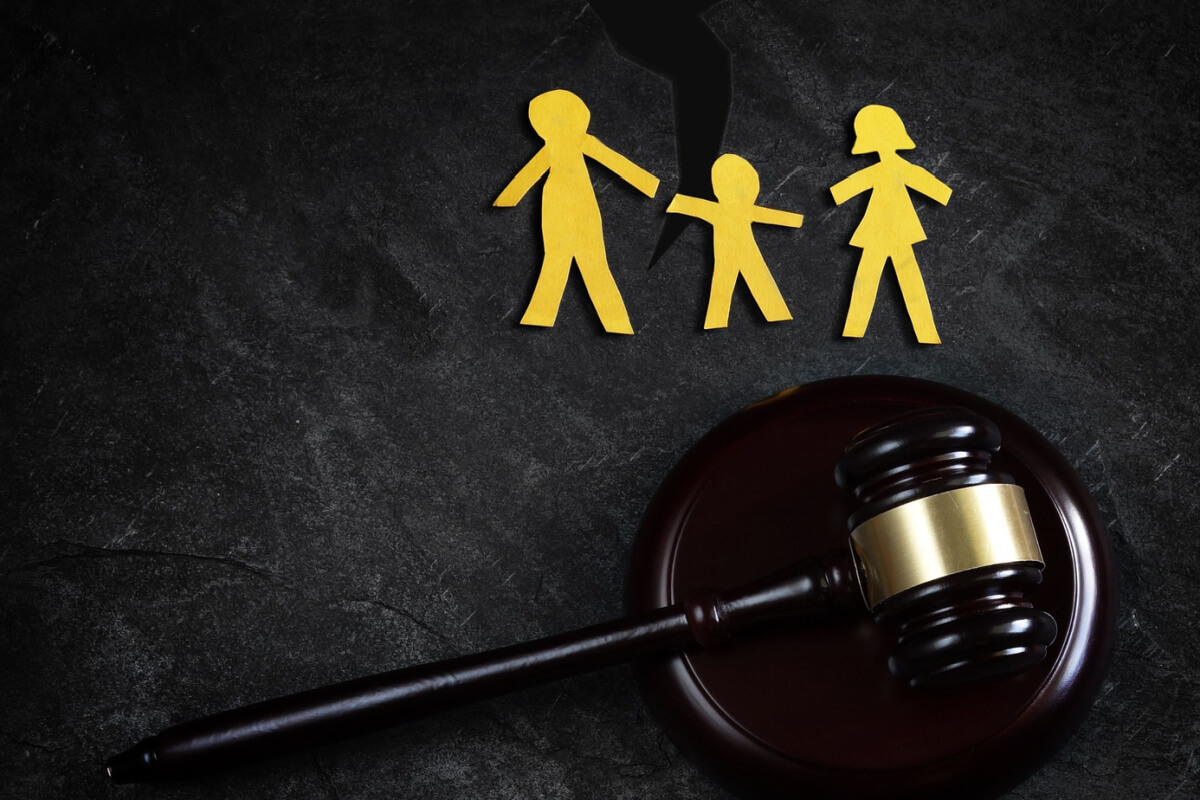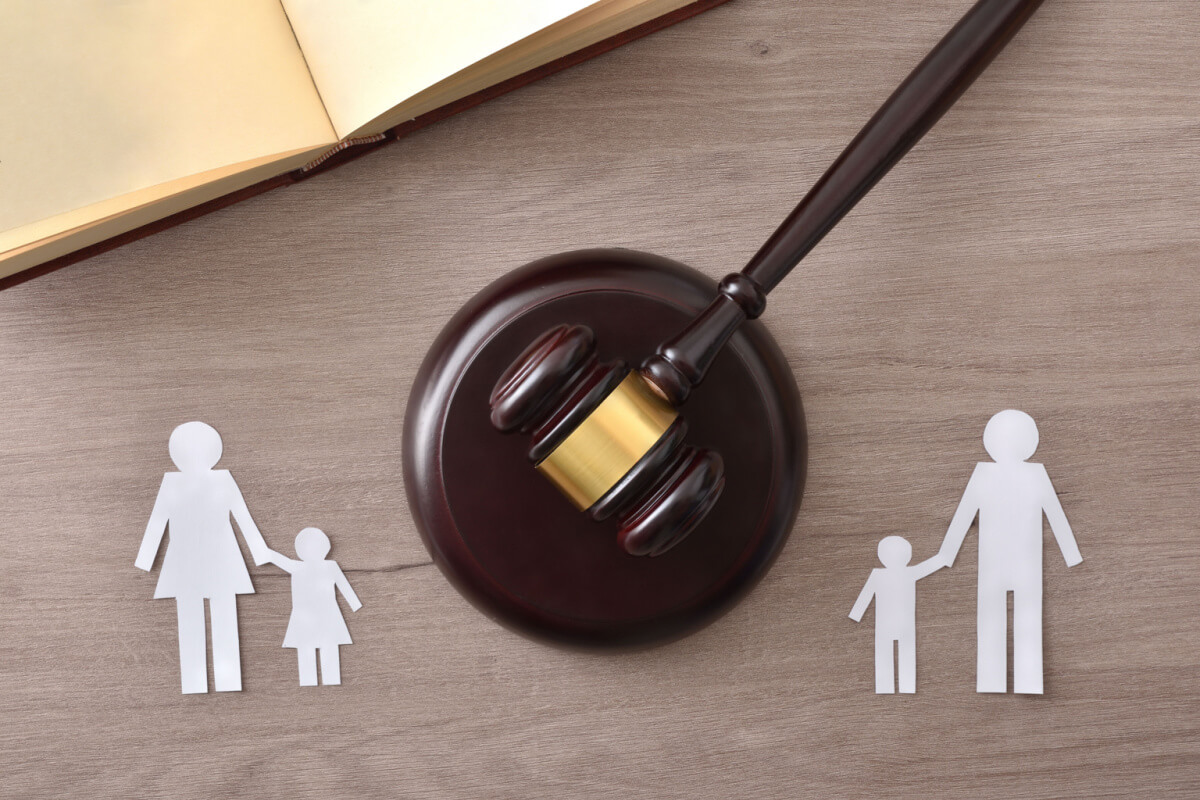
Joint vs Sole Custody – What’s Best for Your Family?
When a couple splits, they must decide on custody and visitation arrangements – if the couple is married. If the couple is not married, the father does not have any custody or visitation rights unless he signed an Acknowledgement of Paternity for any children born to them. In that case, the mother has sole custody of the minor children.
What is Joint Custody?
When the parents have joint custody, they both have the right to spend time with their children and make decisions for their children. Generally, in a divorce, the court will look at what is in the best interest of the children – and that is having the presence of both parents in the children’s lives unless either parent is deemed unfit.
The court can also remove a parent from a joint custody agreement. In one case, the parents had joint custody. The mother decided she wanted to force sole custody and absconded with the child to another state. The father petitioned the court for an emergency order to pick up the child in the other state. At the same time, he asked the court for sole custody. While the court granted the pickup order immediately, it required the father to attend a hearing to change custody.
The mother came back for the hearing and, while on the stand, started talking about seeing and believing in ghosts and other beliefs that went against the father’s and child’s belief. The mother also showed emotional instability while on the stand. The court ordered that the father would have sole custody of the child.
What is an Unfit Parent?
A court might deem a parent unfit for custody or visitation if the parent is sentenced to jail or prison, abuses alcohol or drugs, or has mental and / or emotional issues. The court could award sole custody to the other parent or order supervised visitation for the parent deemed unfit. Once the parent shows the court that he or she is back in control of his life, that parent could petition the court for custody or visitation rights.
Another instance where a court might award sole custody to one parent or the other is if one parent is abusive toward the other and / or toward the children. For example, if a mother files a domestic violence action against the father, the court could decide that the mother proved the father was not only a danger to her but to the children as well.
What is Sole Custody?
If the court orders sole custody, only the parent with custody has the right to spend time with the children and to make decisions for the children’s benefit, such as which school to attend, which church the children should attend, and which medical procedures the children should have.
The parent with sole custody does not have to allow visitation with the other parent. If a child was born out of wedlock, the mother always gets sole visitation if the father does not sign an Acknowledgment of Paternity – even if the father knows he is the biological father of the child.
Pros and Cons of Joint Custody
The court is almost always going to order some form of joint custody when it is in the best interests of the children. Joint custody has its pros and cons, including:
Pros of Joint Custody
The pros of joint custody include the following:
- Both parents can spend quality time with their children.
- The children have the benefit of having a mother figure and father figure in their lives.
- The parents can create a time-sharing schedule that best fits their work lives.
- If one parent needs a babysitter, he or she can always give the other parent first right of refusal to watch the kids rather than hiring a babysitter.
- The parents have to work together to make the appropriate decisions for school, medical care, religious upbringing and other significant life decisions parents normally make for their children.
When parents have joint custody, they need to make a visitation schedule. It might be every other weekend for the father, or the parents might decide to have 50/50 custody, so the children have the benefit of having equal time with both parents.
Cons of Joint Custody
While the pros outweigh the cons of joint custody, there are some cons, including:
- The parents must stop what they are doing to pick up and / or drop off the children, especially if the court makes them exchange the children in a public place.
- If a parent is late to pick up the child, he or she could lose visitation for that time period.
- The parent with primary custody sometimes keeps the children from visiting the other parent.
- It is easy, though frowned upon, for one parent to turn the other against the children.
- If one parent has to move away because of work, that parent might not see the children as often as he or she would like.
Pros and Cons of Sole Custody
The only pro of sole custody in the eyes of a child is that the child doesn’t have to move between two homes for visitation. The parent with sole custody has many pros, including not having to drop everything for pick up and drop off times. He or she also doesn’t have to discuss major decisions, such as which school the children should attend or which church the child should go to with the other parent.
Having sole custody also means that the parent with sole custody can move wherever and whenever she wants without worrying about the court prohibiting it so the children can see the other parent.
The cons of sole custody are many and include the following:
- The children do not have the benefit of having both parents in their lives. This could affect them emotionally and financially. Even when the secondary parent pays child support, the money is never the same as when the parents were together.
- The parent with sole custody doesn’t have a backup for watching the children during working hours or should an emergency arise.
- The parent with sole custody has all the stress of making decisions for the minor children, including difficult medical decisions.
In cases where the mother has sole custody because the father is not the legal father of the child, she has the financial burden of raising the child on her own unless the father voluntarily pays child support.
Tips for Reaching an Agreement

Overall, having joint custody is better for both parents and the children. In some cases, the parents cannot come to a decision on custody issues. Tips for reaching an agreement include:
- Keep in mind that if the court has to order custody and visitation, it will do so as it sees what is in the best interest of the children. Those arrangements may interfere with your work hours.
- Consider having 50/50 custody, whether each parent spends a week or two weeks with the children and alternate major holidays. Fifty-fifty custody also affects child support since the children spend equal time with both parents.
- Remember that this is about the children – not what the parents want.
If you still can’t make a decision, the court will make that decision for you, and it might not be what you want – it is better to decide on custody and visitation with the other parent. A custody attorney can help you with custody arrangements and handle any concerns you might have about the other parent having custody or visitation. Please seek an attorney in Louisiana by calling at 504-780-8232 or contact us online.



